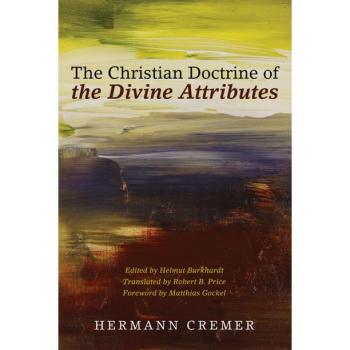For Fellow Arminians and Quasi-Arminians (Non-Calvinists): Prevenient Grace
I recently had a very interesting discussion with a non-Calvinist Baptist theologian and denominational leader. He interviewed me for his podcast about soteriology. (I believe his “show” is called “Soteriology 101.”) I enjoyed the hour long conversation very much; he is very friendly to Arminians and Arminianism, but, like many Baptists, he prefers to call himself a “traditional Baptist” and “non-Calvinist” rather than “Arminian.” I’ve had this discussion before with several Southern Baptists including Paige Patterson when he was president of Southwestern Baptist Theological Seminary.
Here’s the “gist” of the issue that keeps coming up in these conversations. I argue that Arminius himself, and all faithful, classical, historical Arminians (among which I count myself) believe that prevenient grace (enabling, assisting grace that goes before conversion making it possible) is supernatural and a special work of the Holy Spirit freeing the will of the sinner which is otherwise bound to sin (unbelief). I have presented the alternatives as Calvinism (irresistible grace) and semi-Pelagianism (the initiative in salvation is human).
*Sidebar: The opinions expressed here are my own (or those of the guest writer); I do not speak for any other person, group or organization; nor do I imply that the opinions expressed here reflect those of any other person, group or organization unless I say so specifically. Before commenting read the entire post and the “Note to commenters” at its end.*
Apparently, from what I have been able to detect and understand, the “traditional Baptist, non-Calvinist” view is that the gospel itself naturally, without any supernatural work of the Holy Spirit, is all that a sinner needs to respond freely and positively and be converted. It seems to me that this view of prevenient grace as “only the gospel communicated” is insufficient to ward off semi-Pelagianism. I’m not going to label it as semi-Pelagian, but I worry that it is too close to that for comfort. It seems to me that the Bible does teach that the sinner in incapable of responding to the offer of saving grace with repentance and faith without a supernatural work of God, the Holy Spirit, enabling him or her to do that. “Dead in trespasses and sins” (Ephesians 2 and Colossians 2) seems to imply that.
How important is this difference? Is it a distinction without a difference? Are both really Arminians? Is the “Arminian umbrella” large enough to shelter both classical Arminians (who follow Arminius himself about supernatural prevenient grace) and non-Calvinist “traditional Baptists?”
Sometimes it seems to me that if two Christians who seem to agree about something talk long enough they will inevitably find that they disagree about it on some point—however minor. But is this a minor point?
I have to admit that sometimes it seems so to me and other times it seems major.
I invite input from fellow non-Calvinists about this. This conversation thread is only for non-Calvinist evangelicals and evangelicals who do not subscribe to monergism (whatever they may call themselves).
*Note to commenters: This blog is not a discussion board; please respond with a question or comment only to me. If you do not share my evangelical Christian perspective (very broadly defined), feel free to ask a question for clarification, but know that this is not a space for debating incommensurate perspectives/worldviews. In any case, know that there is no guarantee that your question or comment will be posted by the moderator or answered by the writer. If you hope for your question or comment to appear here and be answered or responded to, make sure it is civil, respectful, and “on topic.” Do not comment if you have not read the entire post and do not misrepresent what it says. Keep any comment (including questions) to minimal length; do not post essays, sermons or testimonies here. Do not post links to internet sites here. This is a space for expressions of the blogger’s (or guest writers’) opinions and constructive dialogue among evangelical Christians (very broadly defined).

















